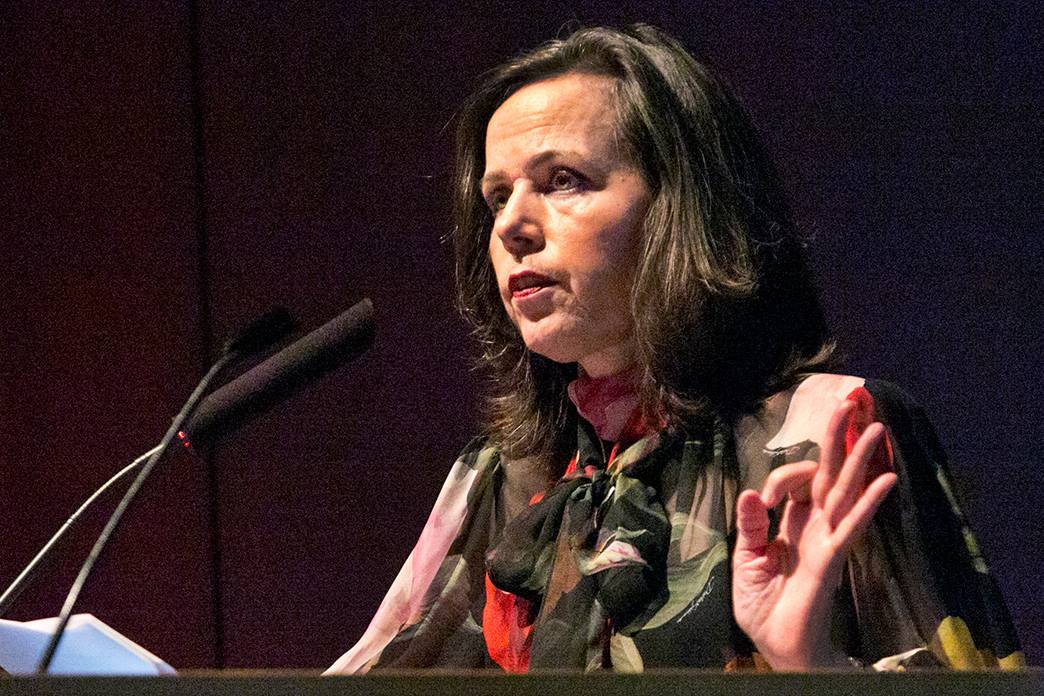How To WIn a Nobel Prize in Literature
Duke alum Sara Danius peels the cover back on the Nobel process

In the end, the secret wasn’t much of a secret.
Sara Danius, a Duke graduate and Permanent Secretary of the Swedish Academy – which gives the Nobel Prize – pulled the cover back on the secretive Nobel process just slightly for a campus audience Wednesday.
“What does it take to win the Nobel Prize in Literature? What do I know? I don’t know,” she told an audience at the Nasher Museum’s auditorium. “All I know is that the criteria are simple, but tough. You get awarded not for a single work, but for a life’s work. You are expected to come up with something new in terms of content or form or both. And that is how you win the Nobel Prize in Literature.”
Danius, who holds a doctorate in literature from Duke, avoided a blunt description of what might or might not win one the Nobel Prize in Literature.
Instead, she used two recent winners as case studies, , discussing the last two laureates for the Nobel Prize in Literature, Belarusian journalist and non-fiction writer Svetlana Alexievich, who won in 2015 to much critique, and folk musician Bob Dylan, who won in 2016.
The choices were challenged by critics all over the world because of the literary roles of the two winners: one a journalist, the other a lyricist. Yet, Danius affronted the popular criticism from the very beginning, clarifying what little criteria exist for the Nobel Prize.
“The Nobel Prize in Literature is awarded to someone who has done outstanding work in an idealistic direction that adds the greatest benefit to humankind,” she said. “Nationality is expressly unimportant.”
Danius confronted some of the popular accusations the Swedish academy has faced in recent years.
“Has the Nobel Prize lost its way to low culture? What makes Alexievich and Dylan worthy of the Nobel Prize in Literature when there are a myriad of great novelists around?” she asked.
Alexievich’s spare, unflinching work examined in part what women when through during World War II.
“Alexievich creates the speech of living people, that which disappears when the people in question no longer exist. She removes everything superfluous to the core. She adds nothing. She subtracts. She tells us about the history of an emotion compacted by one disaster after another,” Danius said.
She also spoke about Dylan, the rock n’ roll /folk legend who declined to appear to accept the award during the December ceremony last year.
“Dylan has found himself by losing himself over and over again,” Danius said. “He constantly undergoes metamorphoses. He feels the pull of the past and the pull of the future.”
She compared Dylan to perhaps the most well-known oral poet of all-time, Homer, author of The Illiad and The Odyssey. She pointed out that Ancient Greek poetry was intended to be grasped aurally, not visually—performed in our ears, not read on the page.
“Dylan has created his own poetic universe by stealing from others,” shd added. “Anyone could steal you might say, but that does not imply that one can become a masterfully skilled thief.”